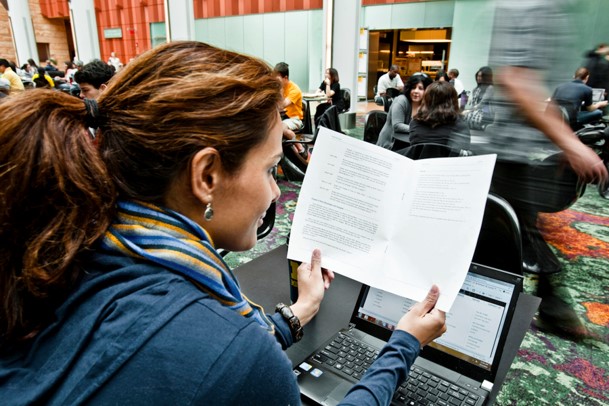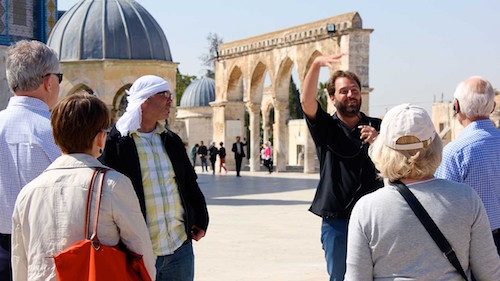
WDI Publishing is organizing a new competition for case studies focusing on the unique advantages and challenges of doing business in the Middle East and North Africa (MENA) region.
Submissions for the competition, “Doing Business in the Middle East, North Africa Region,” should focus on a business dilemma of an organization or company located or doing business in the MENA region. The cases may feature a small or large organization, private sector multinational, non-governmental organization (NGO) or nonprofit.
The global competition is open to individual students or student teams, as long as they enter in collaboration with a faculty member from a degree-granting university or college. Faculty or faculty teams may also enter as long as they are currently teaching at a degree-granting university or college. Other individuals may also enter, provided they do so in collaboration with a faculty member from a degree-granting university or college.
The winning entry will be awarded $5,000. Second place will earn $3,500 and third place $1,500. Additionally, all three winning cases will be published by WDI Publishing and added to its case catalogue. Entry forms are due Dec. 12, 2019, and the final case and teaching note must be turned in by Feb. 9, 2020. Winners will be announced on March 20, 2020.

To learn more about key deadlines, entry requirements, judging criteria and to access entry forms and submission documents, click here. For resources on how to write a case study and a teaching note, along with other helpful information, click here.
WDI Publishing has assembled an impressive panel of judges for the competition. They are:
Kim Bettcher – Center for International Private Enterprise (CIPE)
Andrew J. Hoffman – University of Michigan Ross School of Business
Manel Khadraoui – University of Tunis/Tunis Business School
Hagop Panossian – American University of Beirut Olayan School of Business
WDI Publishing Manager Sandy Draheim said she hopes the competition will encourage the development of new, academic case studies about the MENA region, increase the understanding of doing business there and grow the critical thinking skills of university students in these countries through the use of these new MENA-focused cases.
“There are many regions of the world that could use more ‘localized’ business case studies for higher education,” Draheim said. “But, partly based on the incredible response, interest and results of WDI’s M²GATE program, we thought it would be interesting to target our first geographically-themed case competition around MENA issues. We want to elevate the quality and quantity of teaching materials that provide students – both in the MENA region and around the world – with opportunities to take on the roles and responsibilities of managers in organizations located or doing business in this region.”
WDI has been working with Palestine Polytechnic University (PPU) to develop a life skills orientation course for incoming undergraduate students. The goal of the course is to prepare students with important life skills before they begin their university courses so they are better prepared for their academic and professional careers. WDI developed a curriculum, held a one-week “train-the-trainer” program to prepare PPU faculty members to run the program. WDI faculty affiliate Julie Felker traveled to Hebron in December 2018 to deliver the workshop.

Image credit: MEJDI Tours
Aziz Abu Sarah, a Palestinian who co-founded a tourism business with an Israeli partner to help break down cultural and historical barriers through travel, will discuss how everyday interactions between people from different cultures are an effective peace-keeping tool. Part of the WDI Global Impact Speaker Series, the talk is at 5 p.m. on Monday, April 10 in Room R1230 at the Ross School of Business, and is free and open to the public.
“Aziz Abu Sarah united his drive for cross-cultural understanding, his passion for peace building and his business acumen to co-found MEJDI Tours,” said Amy Gillett, vice president of WDI’s Education Initiative. “This is an impressive social enterprise that shows us the power of bringing together passions and strengths to make positive change in the world. I know that students will be inspired by his story.”
Abu Sarah’s talk, “Social Entrepreneurship for Cross-Cultural Dialogue,” will explore MEJDI’s socially-responsible business model that honors clients and local communities, and is financially and environmentally sustainable. Sarah, MEJDI’s CEO, believes simply being a tourist is an opportunity to break stereotypes and foster understanding, friendship and peace. MEJDI was established in 2009 and is a a certified B Corp, which harnesses the power of business for social change.
Abu Sarah is a TED Fellow and a National Geographic Explorer, an honor given to people who are pushing the boundaries of knowledge and exploration. He has spoken at countless international organizations and universities, including The United Nations, Nexus, TED, Georgetown, Yale and Harvard. He has published articles in The New York Times, National Geographic, and other publications.
Abu Sarah is the recipient of the Goldberg Prize for Peace in the Middle East, the European Parliament’s Silver Rose Award, the Eisenhower Medallion, and the Eliav-Sartawi Award for his Middle Eastern Journalism. He was named one of the 500 most influential Muslims in the World by the Royal Strategic Centre in Jordan from 2010-2016. He also was recognized by then-United Nations Secretary General Ban Ki Moon for his work in peace building.
Abu Sarah’s popular TED Talk, which has more than 1.2 million views, is below.